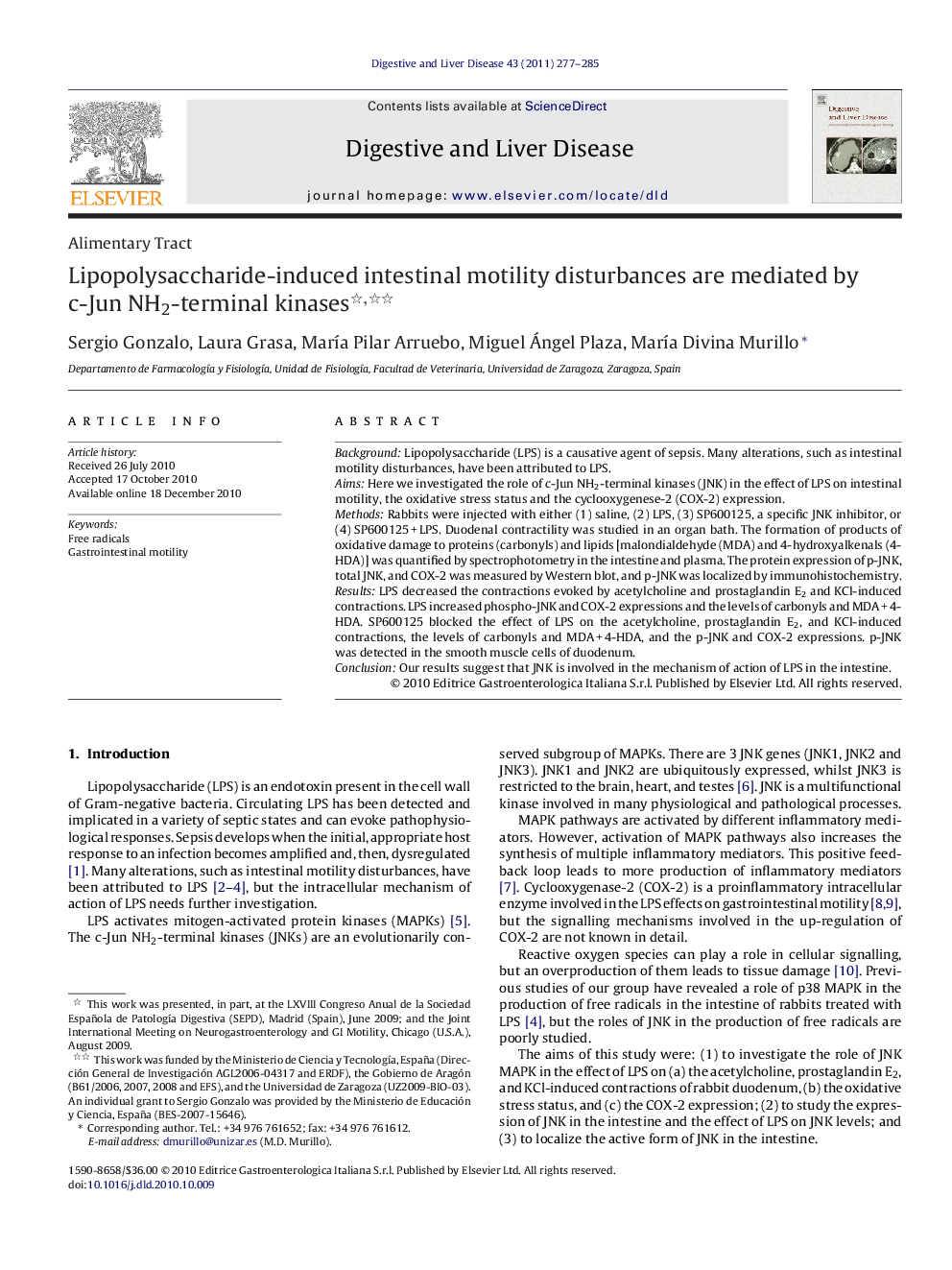| Article ID | Journal | Published Year | Pages | File Type |
|---|---|---|---|---|
| 3263267 | Digestive and Liver Disease | 2011 | 9 Pages |
BackgroundLipopolysaccharide (LPS) is a causative agent of sepsis. Many alterations, such as intestinal motility disturbances, have been attributed to LPS.AimsHere we investigated the role of c-Jun NH2-terminal kinases (JNK) in the effect of LPS on intestinal motility, the oxidative stress status and the cyclooxygenese-2 (COX-2) expression.MethodsRabbits were injected with either (1) saline, (2) LPS, (3) SP600125, a specific JNK inhibitor, or (4) SP600125 + LPS. Duodenal contractility was studied in an organ bath. The formation of products of oxidative damage to proteins (carbonyls) and lipids [malondialdehyde (MDA) and 4-hydroxyalkenals (4-HDA)] was quantified by spectrophotometry in the intestine and plasma. The protein expression of p-JNK, total JNK, and COX-2 was measured by Western blot, and p-JNK was localized by immunohistochemistry.ResultsLPS decreased the contractions evoked by acetylcholine and prostaglandin E2 and KCl-induced contractions. LPS increased phospho-JNK and COX-2 expressions and the levels of carbonyls and MDA + 4-HDA. SP600125 blocked the effect of LPS on the acetylcholine, prostaglandin E2, and KCl-induced contractions, the levels of carbonyls and MDA + 4-HDA, and the p-JNK and COX-2 expressions. p-JNK was detected in the smooth muscle cells of duodenum.ConclusionOur results suggest that JNK is involved in the mechanism of action of LPS in the intestine.
